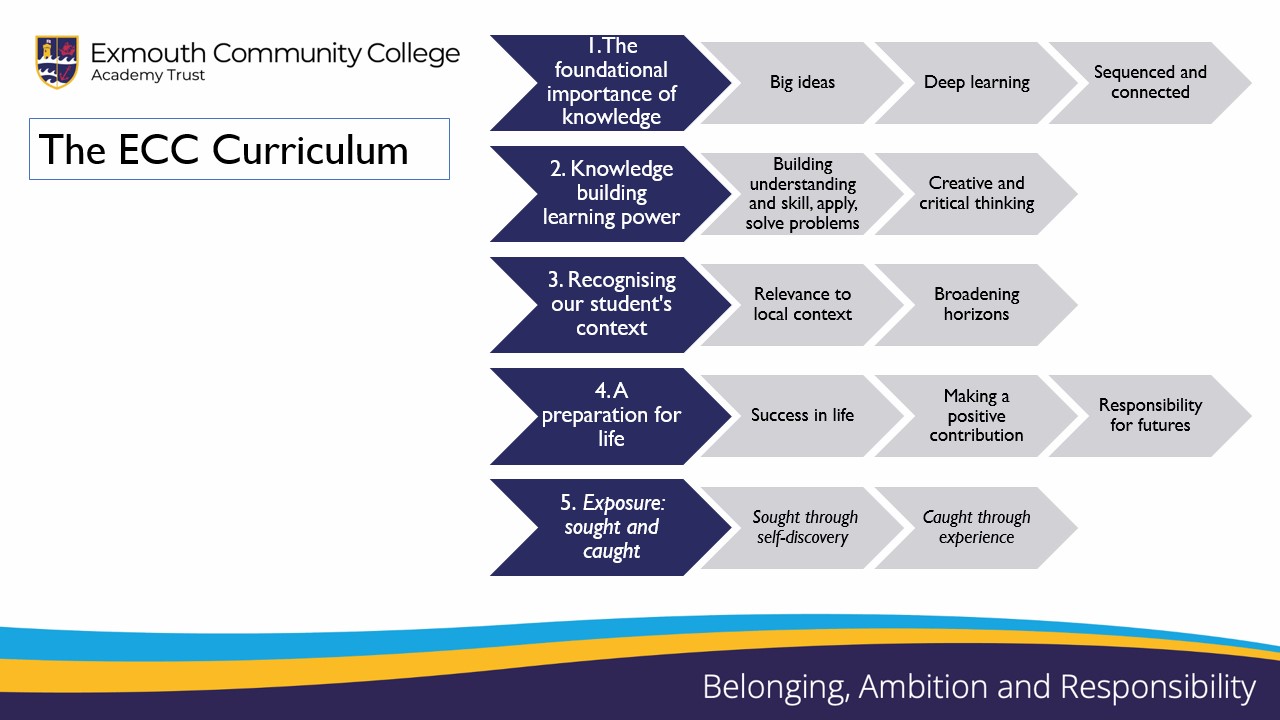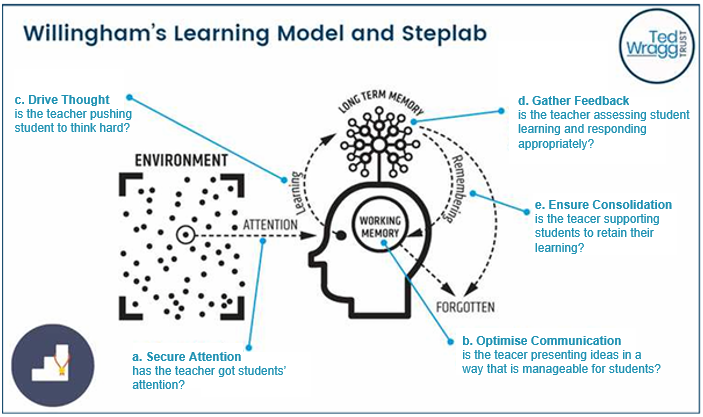Curriculum

The ECC Curriculum – A Whole School Rationale
As part of the Ted Wragg Trust, the Ted Wragg ‘Standard’ is that schools have a broad, balanced, coherently sequenced and impactful curriculum, which exceeds the ambition of the national curriculum.
At Exmouth Community College Our School Vision states:
We believe that a successful preparation for future life involves the development of a broad range of academic and wider knowledge, skills and competencies through a ‘holistic’ curriculum including high quality learning and experiences both in and out of the classroom:
-
An ambitious and engaging taught curriculum delivered through lessons by specialist subject teams.
-
A broad and exciting wider curriculum delivered beyond taught lessons, including enrichment, ‘co-curricular’ experiences and other opportunities (e.g. student leadership).
We believe in:
The foundational importance of knowledge:
“Thought depends on knowledge – the more we know, the more we can learn.” (Didau, 2015).
Our curriculum will draw on the best that’s been thought, said and done, giving our students key cultural capital. Subjects will identify the big ideas and threads that run through their discipline. They will promote deep, sustained learning rather than superficial coverage of content. This will be carefully sequenced to allow students to build on their knowledge and understanding over time and make connections between different domains.
Knowledge building learning power
“Knowledge builds the power to learn and helps us make sense of new situations” (Perkins, 2009).
The main goal of teaching is not to just teach facts, but to teach students how to think, develop understanding and skill, apply what they learn to new situations and solve problems. This will prepare them as creative, critical thinkers and innovators in a world that is constantly changing.
Recognising our students’ context
"The curriculum must be more than a collection of knowledge; it should represent the experiences, identities, and contexts of the learners, helping them connect with their communities and the world." (Young, 1998).
Our curriculum will reflect our unique South Westerly, coastal context. It will foster a sense of belonging within their local community and respond to its economic and social needs. It will also serve to broaden students’ horizons and develop a strong understanding of the wider world that they will enter in adulthood.
A preparation for life
"A good curriculum helps students not only learn but also helps them become the people they are capable of being." (Myatt, 2018).
Our broad curriculum will provide opportunities for our students to discover and develop their interests and talents, foster a commitment to lifelong learning and prepare them for success in life. It will equip students with the knowledge and awareness needed to take responsibility for their futures and contribute positively to their families, workplaces and the global community. It will foster the development of character and personal growth.
Learning that is taught, sought and caught
"Children learn from what they do, not from what they are taught." (Holt, 1964)
Whilst our taught curriculum will be clearly designed and planned and delivered, some learning is:
- Sought: learning that students actively discover themselves, or
- Caught: learning that students absorb or "catch" from their environment or from the context of their learning.
Exposure to a wide range of experiences will maximise these ‘less intentional’, but equally valuable, aspects of the learning experience.
We place particular emphasis on the role that literacy and vocabulary play in unlocking the whole curriculum. Our teachers explicitly teach the meaning of a subject-specific language, and we expect lessons to contain challenging reading and writing.

